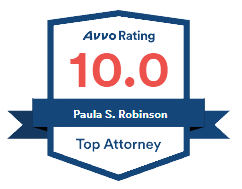Did you know that you can receive Pennsylvania workers’ compensation without having to appear at a hearing before a Workers’ Compensation Judge?
That is, if you suffer a work related injury, and the workers’ compensation carrier accepts your injury and you receive payments of your wage loss and medical benefits. However, in most instances, things don’t go that smoothly and in order to get you the benefits you deserve, a workers’ compensation lawyer has to get involved and file a Petition, which means that you have to go to a hearing before a Workers’ Compensation Judge. Since there are Workers’ Compensation Judges located throughout the Commonwealth of Pennsylvania, you will go to a hearing office close to where you live, to make it more convenient for you.
Hypothetical Situation: Let’s start with the most basic example of when you would have to go to a hearing… you have a work related injury, it is denied by the workers’ compensation carrier, and you can’t work. At this point, you have no money coming in, and can’t get much needed medical treatment.
What to expect?
First step would be to get benefits. To do this you can retain a workers’ compensation attorney, who can then file a Claim Petition, and other Petition(s) that are necessary in your case. The Petition is electronically filed through the Pennsylvania Bureau of Workers’ Compensation, and is assigned to a Workers’ Compensation Judge in your general area. After assigned, the Judge’s office will mail out a Notice of Assignment, then shortly after that, mail out a Notice of Hearing.
What happens at the first hearing?
Well, every Judge is different and runs his or her Courtroom a bit differently, but essentially, the evidence gets admitted one way or another for the Judge to ultimately decide who wins the case… you, or your employer and their workers’ compensation carrier, if the case does not settle.
Do I have to testify in my workers’ compensation case?
Typically you will testify at the first hearing as to how you hurt yourself, the particulars of your job title and duties, and just tell your story of your

How long does the hearing process last?
There will be subsequent hearings for submission of medical expert deposition testimony, and possible fact witness testimony, from either side. Some Judges, however, have a “one day-one trial” system, where all testimony and all evidence is given at that hearing. In this case, depositions are taken beforehand in the attorneys’ and medical experts’ offices, with the transcripts handed up at the final hearing.
No matter which way your Judge handles your hearing, it is important to retain an experienced workers’ compensation lawyer to handle your case, as they will be familiar with the assigned Judge and their particular litigation and courtroom style, which will make things go much smoother for you and your case.









